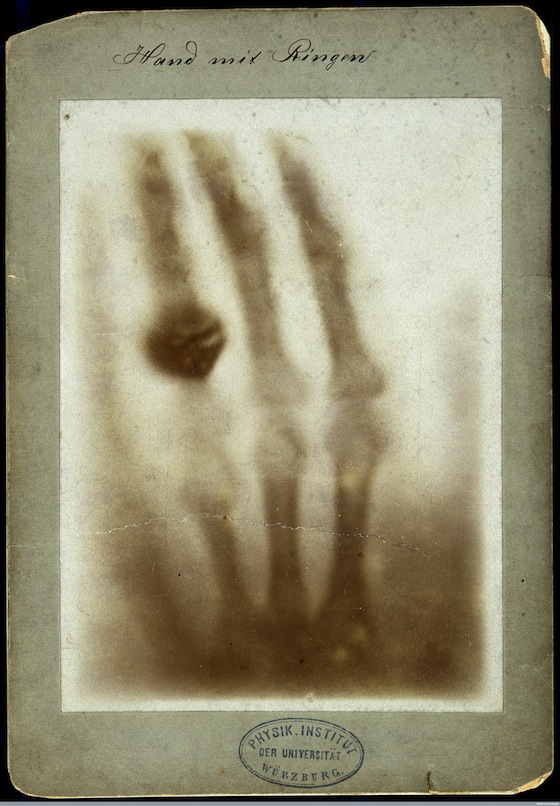Academics from DMU’s world-renowned Photographic History Research Centre (PHRC) are set to take over the national airwaves.
The PHRC is presenting a series called The Five Photographs That (you didn’t know) Changed Everything as part of BBC Radio 3’s acclaimed The Essay feature.

REVOLUTIONARY: The first X-ray photograph will be discussed by Dr Kelley Wilder on Monday evening
It will introduce a national audience to the study of photographic history and the work of the centre, which is home to the largest concentration of photographic historians in Europe.
PHRC director Professor Elizabeth Edwards devised the series and invited colleagues and PHRC collaborators around the world to take part.
The week begins on Monday, February 16 with Dr Kelley Wilder, DMU’s Reader in Photographic History, talking about the first X-ray.
It will be followed by:
• Dr Oman Nasim, of the University of Kent, on how a photo of a nebula changed our views of the universe and our place in it
• Dr Jeanne Haffner, of Harvard University, on aerial photography
• Professor Elizabeth Edwards on how amateur photographers helped change the way a nation viewed itself
• Dr Jennifer Tucker of Wesleyan University, USA, on the photo which changed the law
Prof Edwards said: “When they first approached us, they weren't clear what they wanted, except it wasn’t five great moments in photo journalism.
“What we have given them are photographs that themselves are events and that themselves show how photography that has changed the way people live in and think about their world - the shape of the galaxy we inhabit, and diagnose disease from inside the body - which we now take for granted.”
Dr Kelley Wilder added: “Hopefully, it [the series] will show that this medium - which has changed enormously since 1839 - is still here, still current and is still powerful. We are all very passionate about the role of the photography in defining and documenting our lives.”
The PHRC is one of the world’s largest and most dynamic centres of photographic history research in the world. It specialises in interdisciplinary postgraduate research, covering topics such as science, cultural heritage and politics where photography is the main focus.
It also has a unique MA in Photographic History which attracts scholars from around the globe to DMU.
Posted on Friday 13 February 2015